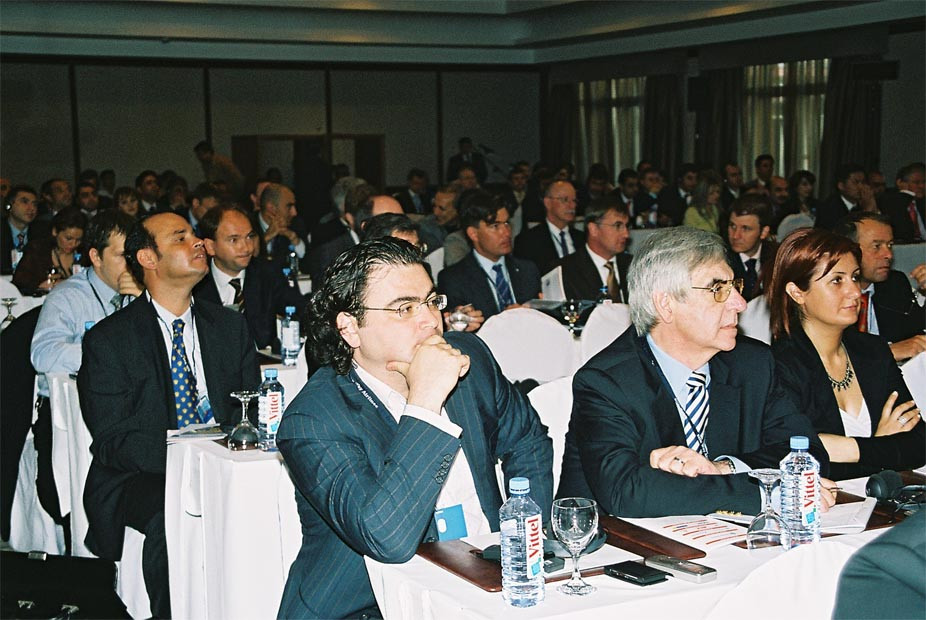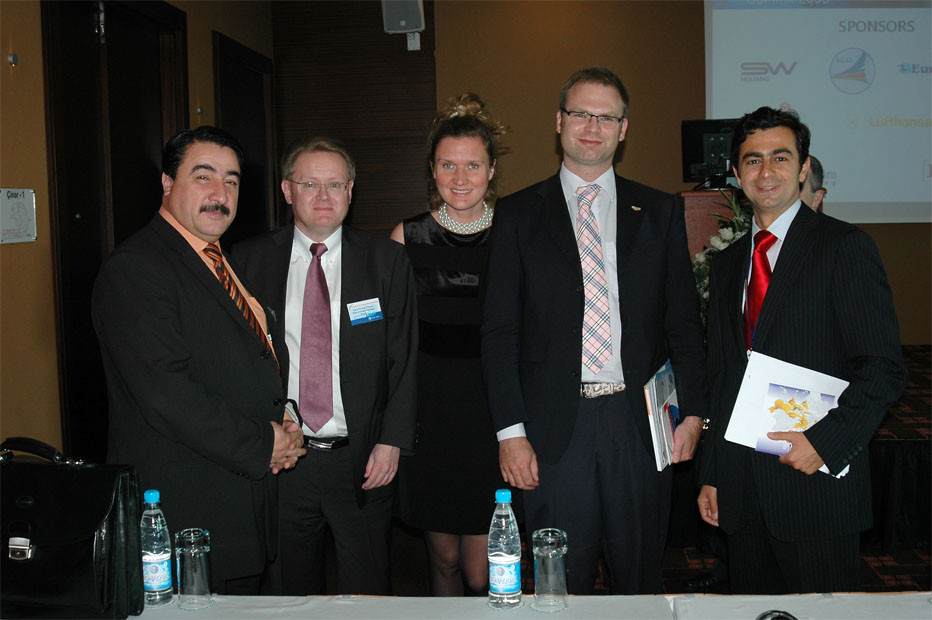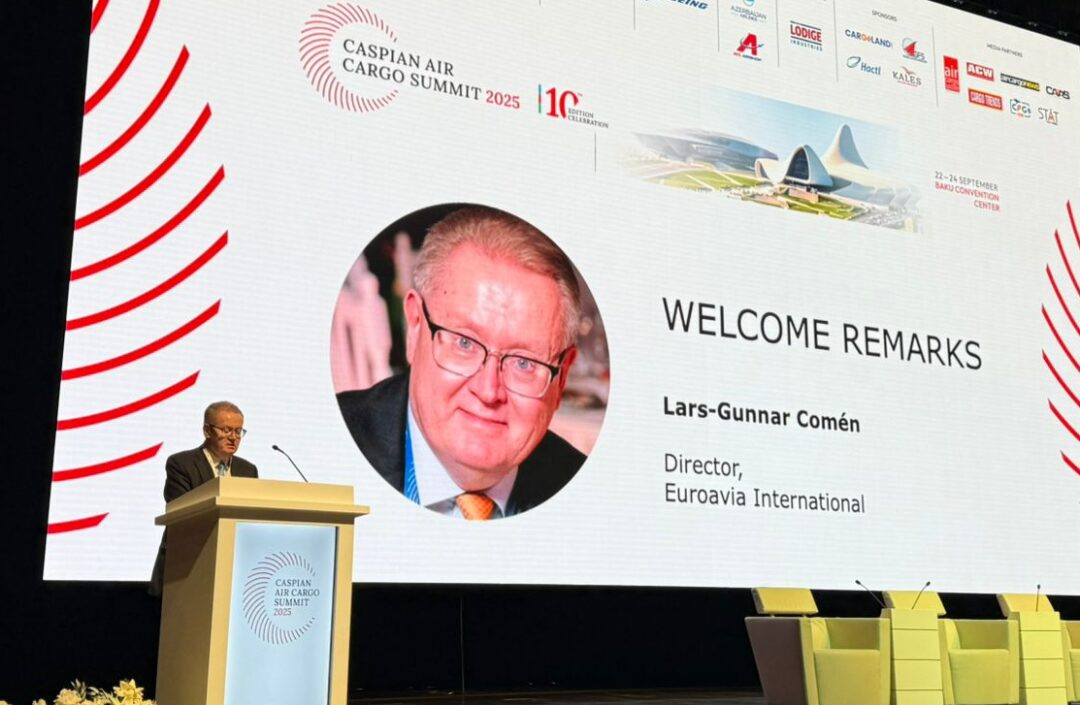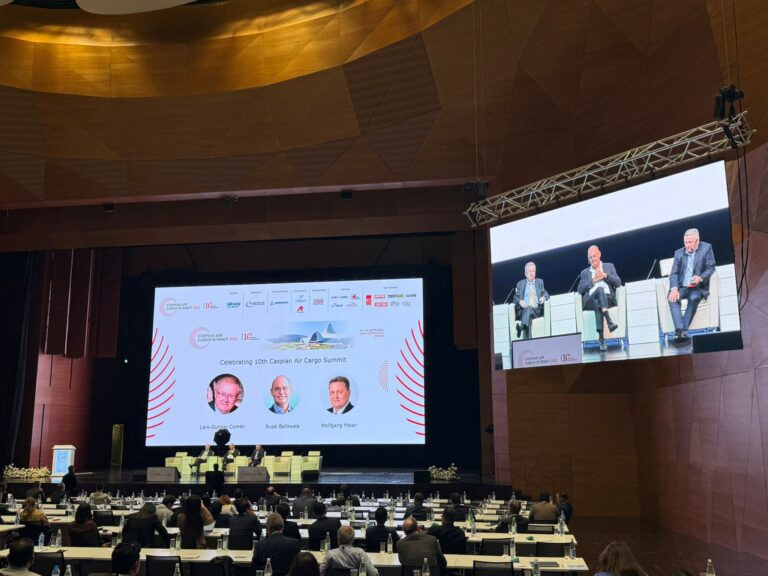When Lars-Gunnar Comén first landed in Baku in 2005, he admits he was unsure what to expect. At the time, Azerbaijan was still far from today’s rapidly modernising economy, and the idea of launching a new international cargo conference there was a gamble.
“I was invited about 20 years ago by Silk Way to come to Baku and discuss if we might start a new conference here,” Comén recalled. “One year later, in 2006, we did the very first Caspian Air Cargo Summit, and this is now the 10th edition.”
Since then, the event has grown into one of the region’s most established industry gatherings, attracting carriers, forwarders, handlers, and technology providers from across continents. What began as a small experiment has become a fixture on the global air cargo calendar.
Watch interview with Lars-Gunnar Comén online:
Building something new in Baku
Comén, director of Euroavia International, had already organised aviation events in Europe when he was first approached by Silk Way. The initial pitch was simple: could Baku host a new kind of conference that would put the Caspian region on the industry map?
“When I came to Baku for the very first time, it was not the same city, not the same country — it was quite different,” he said. “But it was amazing to come here, and it was very easy for me to decide this might be something special.”
The first summit took place at the Hyatt Hotel in May 2006.
“From the beginning I felt this could be something special,” he said in interview with ACW. “Working with the Caspian Summit has always been a lot of fun. It’s a big job, not always easy, but every edition we manage to create something new, better and better.”

Growing with Silk Way and the industry
The Summit’s growth has mirrored the trajectory of Silk Way itself. In 2006, the airline was still a relatively small regional player. Today, Silk Way West Airlines operates a fleet of widebody freighters and is driving a multi-billion dollar airport development at Alat.
“During these 20 years they have been growing from a quite small local airline to a global major cargo carrier,” Comén noted. “They have also been the success factor for my event, because the Caspian Summit has become well known, quite big, and we always attract very good speakers from all continents.”

The content has also matured. Russi Batliwala, chairman of Chapman Freeborn, recalled at this year’s closing fireside chat that early presentations often consisted of text-heavy slides read out word by word. “I thought, wow, we’ve got a long way to go,” he said. “Things have changed — today, the quality of speakers and presentations is amazing.”
Continuity and relationships
For Comén, the most important constant has been the people who return year after year. “What makes this event unique is the longevity of relationships. Many of the delegates have been with us since the very beginning,” he said.
Wolfgang Meier, now President and CEO of Silk Way West Airlines, agreed. “Back then we had 80 participants — and I bet 60 of those people are still with us,” he reflected during the panel. “That is an achievement, and it speaks for the hospitality of this country.”
This continuity, Comén argues, is not just about networking but about trust. The region’s business culture places high value on long-term partnerships, and the summit has become a platform where those ties are reinforced.

A mix of business and culture
Part of the event’s identity has been its blend of serious industry discussion with memorable social moments. Over the years, delegates have swapped stories of late-night billiards games, cultural tours, and even unexpected encounters with snakes during early summits.
“It’s not always easy, but it’s fun – and we always manage to create something new every time, better and better,” Comén said. That balance, he argues, is why the event stands out in a crowded global calendar.
As the Caspian Air Cargo Summit marks its 10th edition, Comén is reflective about its journey but cautious about its future. The industry has changed beyond recognition since 2006, shaped by digitalisation, e-commerce growth, and shifting geopolitical trade routes. Azerbaijan itself is now investing heavily in logistics, with the new Alat airport project seeking to position the country as a major transit hub.
“When you create such a strong base and build up such a strong hub, it puts the country in a stronger position. It creates jobs, it creates opportunities, and it develops the whole logistics sector,” he said.
10th edition of the Caspian Air Cargo Summit:
- The 10th edition of the Caspian Air Cargo Summit, hosted by Silk Way West Airlines at the Baku Convention Centre, concluded with record participation and major announcements, reinforcing Azerbaijan’s position as a strategic hub on the global logistics map.
- More than 400 delegates from over 45 countries, including executives from DSV, Boeing, Airbus, Rolls-Royce, Atlas Air Worldwide, ACL Airshop, Hactl, Kales Group and other global companies, gathered in Baku to discuss the future of air cargo, logistics, and multimodal transport.
- The summit highlighted Silk Way Group’s ambitious growth strategy and Azerbaijan’s rising role in Eurasian logistics. Central to these plans is the Alat Free Economic Zone Airport & Cargo Village project, covering 750 hectares.




